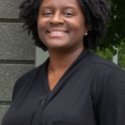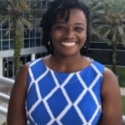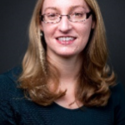Attracting Personnel to Serve Children With Disabilities (August 2019)
The final event in the 2019 OSEP Symposia Series focused on attracting personnel to careers in special education, early intervention, early childhood special education, and related services; highlighted current research on this topic; and explored promising practices that are making a difference in programs, districts, and States.
Symposium Recording and Meeting Resources
Presenter Information
Evaluations
Symposium Prework
Attracting Personnel to Serve Children With Disabilities: Resources
This document contains resources that are provided for the user’s convenience. The inclusion of these materials is not intended to reflect its importance, nor is it intended to endorse any views expressed, or products or services offered. These materials may contain the views and recommendations of various subject matter experts as well as hypertext links, contact addresses and websites to information created and maintained by other public and private organizations. The opinions expressed in any of these materials do not necessarily reflect the positions or policies of the U.S. Department of Education. The U.S. Department of Education does not control or guarantee the accuracy, relevance, timeliness, or completeness of any outside information included in these materials.
Center on Great Teachers and Leaders
Join the GTL Center for our final webinar series. We are partnering with colleagues in Texas, Hawaii, and Wisconsin to share progress on a key lever in achieving more equitable educational opportunities and outcomes: improving equitable access to great teachers and effective instruction for the students who need it most.
In each of the four webinars, our technical assistance teams and state/district partners will share the successes, challenges, and lessons learned from implementing a selection of evidence-based strategies, each aimed at ultimately strengthening the educator workforce to better support student learning in high-need contexts. You also will have an opportunity to explore our new (and free!) tools, resources, and supports for these talent management strategies that are available for use in your own context.
Insights on Diversifying the Educator Workforce: A Data Tool for Practitioners
Use this free, user-friendly tool to identify and visualize diversity gaps across the entire educator career continuum, from “future teachers” graduating from high school and entering preparation programs, to preservice teachers entering the educator workforce, and growing and developing into experienced classroom instructors.
College and Career Readiness Success Center
Grow Your Own: A Systemic Approach to Securing an Effective Educator Talent Pool
This learning series supports SEAs, LEAs, educator preparation programs, and community organizations interested in developing and implementing Grow Your Own (GYO) programs in their State, region or district. GYO is a local approach to developing an educator pipeline that leverages existing talent to meet local workforce needs. GYO strategies can address educator shortages and retention issues, promote a more diverse workforce and support college and career readiness development in high school students.
National Center on Intensive Intervention
In this video, Amy McKenna, a special educator in Bristol Warren Regional School District shares her experience with data-based individualization (DBI). Amy discusses how she learned about DBI, the impact her use of the DBI process had on students she worked with, and how DBI helped changed her practice as a special educator.
Project SEEDS
Scholar Virtual Recruitment and Website Creation
To recruit high-quality, diverse scholars, Project SEEDS held several online recruitment events. Potential scholar data was collected during each webinar. In addition, the team created a website where potential scholars could go for further information. For more information, view this slide deck.
Early Childhood Technical Assistance Center (ECTA Center)
ECTA Resource Page on Personnel, Recruitment and Retention
The ECTA Center supports State Part C and Section 619 programs in developing high-quality early intervention and preschool special education service systems, increasing local implementation of evidence-based practices, and enhancing outcomes for young children with disabilities and their families.
The Center for IDEA Early Childhood Data Systems (DaSy Center)
This presentation discusses the importance of including IDEA programs and services in States’ workforce registries and reviews standards and tools that support States’ efforts.
Oh, the Places You’ll Go with Data on Personnel
This presentation contains information on the benefits of building a comprehensive system of personnel data. It also addresses the functions of a data system with regard to personnel and uses of data to address important questions about personnel.
Using Data to Answer Critical Questions about EI/ECSE Personnel
This presentation uses concrete examples to demonstrate how State and local program administrators can use data to answer questions about early intervention/early childhood special education personnel, such as “What are the demographics of our program personnel?” and “What is the annual turnover rate for early intervention personnel in the State?”.
State Data Systems and Critical Questions about Personnel
This presentation provides information on the importance of State data systems in answering critical policy and program questions about the early childhood workforce.
The Importance of Personnel Data
This presentation provides information on why States need to be able to answer critical questions about personnel and introduces the DaSy Data System Framework as a tool for improving State data systems.
The Early Childhood Workforce Data Landscape
This presentation provides information about the importance of comprehensive workforce data collection and an overview of the primary sources of data at the State and regional level, including Part C, Section B 619, early childhood and trainer workforce registries, State teacher certification systems, and others.
The Early Childhood Personnel Center (ECPC)
The ECPC National Database of State Personnel Standards
The ECPC National Database of State Personnel Standards is an interactive map that provides State-by-State personnel standards for all professional disciplines serving children with disabilities age birth to five and their families. This information is intended to assist early childhood interventionists in their search for a position within the field.
ECPC Comprehensive System of Personnel Development (CSPD) Framework
The ECPC collaborated with the Early Childhood Technical Assistant Center (ECTA) to create an Early Childhood Systems Framework for Part C and section B(619) Coordinators to evaluate their current systems, identify potential areas for improvement, and develop more effective and efficient systems that support implementation of evidence-based practices in each of six main areas. The ECPC’s work resides in the Personnel/Workforce (PN) component of this framework, which addresses the necessity of understanding workforce capacity in order to provide timely and consistent services by prepared personnel in early childhood.
Project Impact
This web page is meant to inform prospective students about the funding mechanism available through OSEP for their training in adapted physical education at Oregon State University and as a mechanism to put prospective students in touch with Project IMPACT personnel. Other recruitment tools can be accessed through the website.
Other Resources
Coalition for Teacher Quality Briefs on Recruitment, Growth, and Leadership
The Coalition for Teaching Quality represents a broad cross-section of over 100 local, State, and national organizations representing civil rights, disability, parent, student, community, and education groups. Formed in reaction to a provision that allowed teachers in training to be identified under federal law as “highly qualified” and concentrated in low-income, high need schools, this group has developed a new, comprehensive framework for teaching quality that will allow the nation to put a fully-prepared and effective teacher in every classroom.
Diversifying the Teaching Profession: How to Recruit and Retain Teachers of Color
This report from the Learning Policy Institute discusses promising practices for increasing the number of teachers of color in the workforce.
To Attract Great Teachers, School Districts Must Improve Their Human Capital Systems
This report from the Center for American Progress discusses the importance of human capital practices and systems for attracting personnel. This report provides a direct comparison of the human capital practices in public school districts with best practices elsewhere to underscore the need to reform district human capital practices in order to attract and retain top talent.
Attraction Exemplars
Orange County Public Schools, Florida
How to Become a Teacher Infographic
Talent Acquisition and Compliance Web Page
The Lockheed Martin/University of Central Florida Academy for Mathematics and Science is an education/industry/community partnership aimed at improving mathematics, science and technology education in Central Florida.
Recruiting Washington Teachers
The goal of the Recruiting Washington Teachers (RWT) program is to “grow our own” diverse group of future teachers who more closely reflect the population of today’s children and youth. RWT is a high school Washington teacher academy program, founded in equity pedagogy, that helps students to explore cultural identity and educational opportunities through the lens of the teaching profession.
Prince William County Schools “Growing Our Own Teachers” Program
Growing Our Own Teachers is an innovative program that supports and mentors high school students who desire to pursue a career in education. The Prince William County Schools program helps to identify, recruit, and mentor those current students who after college may commit to Prince William County classrooms as teachers and school leaders.
Symposium Postwork
Special Needs
Mobile Website
Lodging, Dining, Activities
Call for Proposals
Speaker Bios

Laurie VanderPloeg is the Director of the Office of Special Education Programs (OSEP), in the Office of Special Education and Rehabilitative Services (OSERS), at the U.S. Department of Education. VanderPloeg ensures the effective implementation of OSEP's legislative mission, advises the Assistant Secretary on federal education policy related to individuals with disabilities, and provides leadership in addressing issues of American education for infants, toddlers, children, and youth with disabilities through OSEP activities and within the context of the policies of OSERS, the Department, and Congress.
Prior to joining the Department, VanderPloeg served as Director of Special Education at Kent Intermediate School District (Kent ISD) in Michigan. Also at Kent ISD, she served as assistant director for monitoring, compliance and parent support. Prior to Kent ISD, she served as a local supervisor of special education, and a special education teacher in the Grand Rapids Public Schools. VanderPloeg also served as an adjunct professor at Grand Valley State University in the special education administration program. She is a parent of an adult with disabilities.
VanderPloeg graduated from Grand Valley State University with a master’s degree in special education administration and a bachelor’s degree from Grand Valley State College. She holds administrative approvals as both supervisor and Director of Special Education and certification in learning disabilities, cognitive impairment, emotional impairment, and K–8 regular education.

Benny Delgado Jr. is the president and owner of Leaps & Bounds Family Services Inc. and president of the Illinois Developmental Therapy Association. He is a credentialed developmental therapist/evaluator and has over 24 years of experience in working with children with developmental delays from birth to age three. Benny currently serves as a provider representative on the Illinois Interagency Council on Early Intervention and is also a social emotional consultant for a Parents as Teachers program and Early Childhood Developmental Enrichment Center. Benny specializes in providing relationship based/family centered treatment and has provided parent and professional training workshops on a variety of topics including childhood brain development, challenging behavior in young children, typical and atypical development, providing services in the natural environment, empowering parents to be active participants in their IFSP meetings, maximizing parent engagement in therapy sessions, building resiliency in young children and best practices in the effective treatment of autism.

Jaumeiko Coleman, Ph.D., CCC-SLP, FNAP, is the director of the American Speech-Language-Hearing Association’s (ASHA) School Services team. Her responsibilities include tracking national trends that impact the work of school-based speech-language pathologists and collaborating on the development of resources and policy to support school-based ASHA members. Her previous work positions follow: speech-language pathologist in a K-5 school setting, an assistant professor, a district-level school administrator, associate director in ASHA’s National Center for Evidence-Based Practice, and associate director on ASHA’s Continuing Education team. Her clinical and research background includes spoken language and literacy development and disorders, issues in K-12 schools, evidence-based practice of school-based speech-language pathologists, and treatment outcomes of school-based speech-language pathologists.

Lisa Dieker, Ph.D., is a Pegasus Professor and Lockheed Martin Eminent Scholar in the College of Community Innovation and Education at the University of Central Florida (UCF). She serves as the Director of the UCF/Lockheed Martin Mathematics and Science Academy, Program Coordinator for the Ph.D. program in special education, and Co-Director of the UCF Center for Research in Education Simulation Technology (CREST). Her research focuses on harnessing the power of teachers working across disciplines in inclusive settings in teacher education, special education, and simulation. She has led and managed more than $17M in grant funding and has two newly funded doctoral leadership grants to work across teacher preparation, learning sciences, and STEM. She has provided over 100 keynotes and has produced 5 books and over 65 articles and chapters. She holds one patent in simulation and has a second patent pending. She serves on numerous editorial review boards and is the past Associate Editor and Editor of three journals.

Whitney Hanley is a doctoral student, AACTE Holmes Scholar, and LEAD IT scholar in the Ph.D. Exceptional Education program at the University of Central Florida. Whitney received her B.S. in Special Education from University of Louisville in Louisville, Kentucky and her teaching certificate in Special Education P-12 for students with learning and behavior disorders. She received her M.Ed. from Georgia State University in Atlanta, Georgia. While teaching in Georgia, Whitney also completed her Ed.S. in Curriculum and Instruction at Piedmont College in Demorest, Georgia. For seven years, Whitney taught in three different classroom settings. For the first six years of her teaching career, she taught students with learning and behavior disorders in the Elementary setting. Her seventh year of teaching, she taught 8th grade students with learning and behavior disorders. Her research interests include the use of evidence-based supports and interventions for culturally diverse females with emotional and or behavior disorders.

Lindsey Hayes, senior researcher at American Institutes for Research (AIR), provides technical assistance for projects related to special education and educator preparation. Hayes is the intensive technical assistance lead for the Collaboration for Effective Educator Development, Accountability, and Reform (CEEDAR) Center. She supports staff teams to create robust networks between state education agencies, educator preparation programs, and local districts to align preparation policy and professional learning systems for teachers and leaders serving students with disabilities. She serves as the state technical assistance lead for CEEDAR teams in Colorado and New York. Hayes also works with the Center on Great Teachers and Leaders (GTL) to help states advance educator talent management strategies. She leads GTL’s educator shortages in hard-to-staff contexts project and serves on the mentoring and induction team as a content development lead. Hayes earned her M.Ed. in special education from George Mason University.